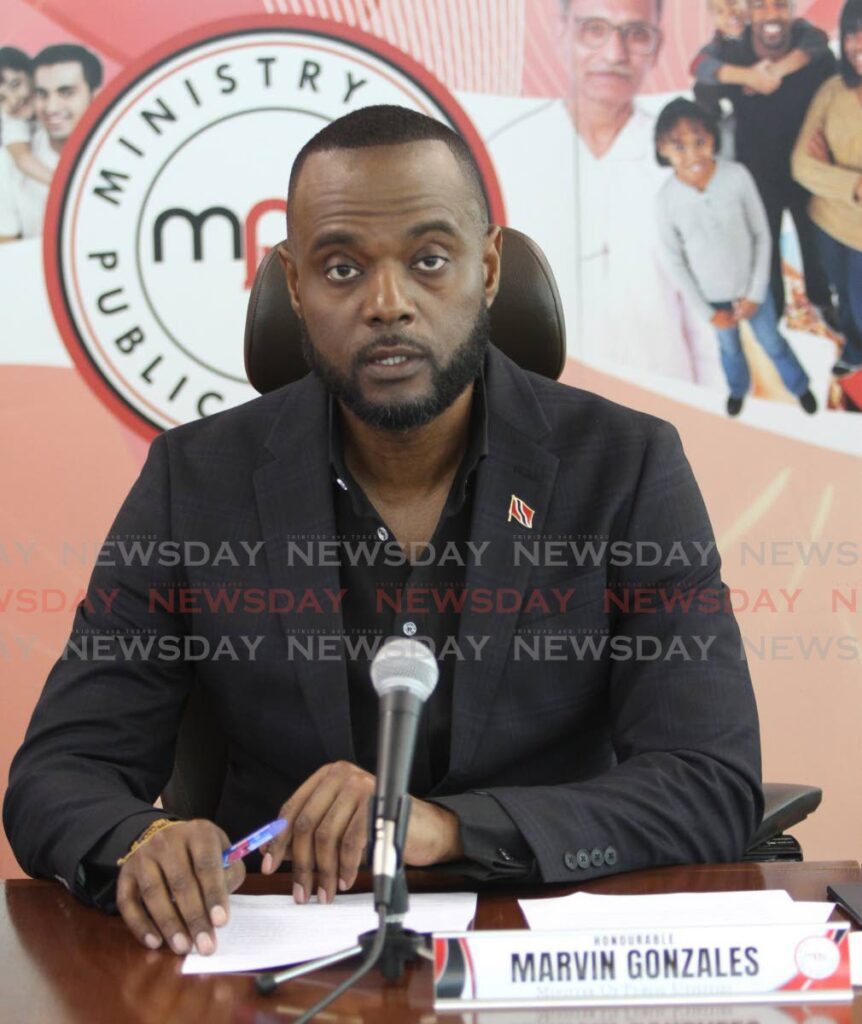Ministry helps low-income households receive water, electricity

Twenty-six families who applied for grants from the Ministry of Public Utilities (MPU) were given their letters of approval for various utility programmes on Wednesday.
The distribution ceremony held at MPU's rooftop at One Alexandra Place, St Clair, featured remarks from the programme's senior project manager of the sectoral programme and project unit, Dixie-Ann Joseph.
She said the programme aligned with the government's national development strategy goals of putting people first and nurturing the country’s greatest assets—its people, saying people are central to development.
Joseph focused on the Utilities Assistance Programme, the electrification programme, residential electrification assistant programme and the water tank programme.
Joseph said the Utilities Assistance Programme was launched in 2010 and expanded in 2013 into two additional components: water tank assistance and solar panel assistance.
The programme's components provide financial assistance to low-income customers of the Water and Sewerage Authority (WASA) and the TT Electricity Commission (T&TEC). It subsidises income to ensure that people in need of assistance can access basic utilities.
Joseph specified that applicants must have water or electricity accounts in their names and authorisation to occupy the property for which the subsidy is requested.
For T&TEC customers, bills must not exceed $200 and WASA customers can benefit from an annual water subsidy.
The second component of the utility assistance programme provides one-time assistance with a water tank and fitting to eligible low-income households and community-based facilities in affected communities.
The Solar Panel Programme aims to provide households in remote areas with access to electricity through a solar-panel system. Applicants' household income must not exceed $10,000 per month and priority is given to households outside the electricity grid.
Joseph highlighted the requirements for the one-time assistance electrification programme, saying applicants must show proof of residency, provide proof of legitimacy to occupy the land and submit a copy of an ID card, land documents, a letter of non-objection from a state agency, proof of income and an estimated cost for electrical infrastructure.
The Residential Electrification Assistance Programme provides one-time assistance to homes that have never been wired or have faulty wiring. Applicants must not have a household income exceeding $10,000 per month, and the necessary documents include an application form, ID copy, land documents, proof of income and a job letter or paper.
Joseph ended by saying the Ministry of Public Utilities is committed to improving the social and economic well-being of citizens, ensuring effective and efficient management of utility sector programmes and providing accessibility to public utility services.
The recipient of the Water Tank programme, Stephen Castillo, expressed gratitude for the new water tanks, acknowledging the challenge of insufficient water and praising the ministry for its professionalism.
Ingrid Gray, a recipient of the Rewiring Electrical Assistance Programme, commended the quick and efficient process and the contractors' tidy work.
Suzie Sookram, a recipient of the Electrical Programme, expressed appreciation for the continued government funding and praised the officers for their willingness to assist.


Comments
"Ministry helps low-income households receive water, electricity"